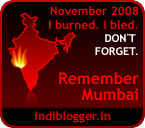This is the first non-fiction book that I am reviewing as a part of the BlogAdda Book Reviews Program. And this book could not have come at a better time. With the entire nation up in arms against a host of issues including corruption, safety of women, prospects for growth, etc., Pavan K. Varma’s Chanakya’s New Manifesto proposes a comprehensive blueprint for change.
As the name of the book suggests, the author has tried to present solutions for the problems which currently plague the nation from Chanakya’s viewpoint, i.e. what would Chanakya do if he were alive today. Chanakya, as we all know, was a great thinker known for his extraordinary ability to devise strategies. As Varma points out in the book, Chanakya had a clear sense of vision, a clear understanding of human behaviour and an ability to analyze complex systems. He also had the courage to work towards what he believed was right.
The author has identified five problem areas which he believes are the reason the mess we are in currently. These are detailed below:
1. Governance: The importance of governance cannot be over-stated. The author suggests identifying the root cause of our poor record on governance and suggests certain ideas including tweaking the current democratic system, having a lock-in period free of political instability, setting up of a Governance Appraisal Panel, etc.
2. Democracy: India is the world’s largest democracy which comes with its own set of challenges. More and more people are perceiving politics as a crooked business which has marred the concept of democracy. To remedy the same, Varma suggests a comprehensive Electoral Reform Bill for changes in our democractic system. He also suggests making political parties’ audited accounts public every year.
3. Corruption: The author makes an interesting observation about Indians finding no contradiction between corruption in their personal lives and condemning it in public. Corruption is often encouraged by the functioning of our public systems. The author suggests the implementation of a Right to Public Services (RTPS) Act immediately. Currently, two states – Madhya Pradesh and Bihar – have implemented some of the provisions of the Act and benefited immensely.
4. Security: India has had to face threats and attacks from several corners, including bomb blasts in different locations at varying points of time. The weak Centre and our approach towards security can be partly blamed for the same. Varma compares our policies with those of other nations including the United States. He wishes that the MEA should be headed by a young, dynamic minister who can resuscitate the organization, among others.
5. Creation of Inclusive Society: The author mentions an important fact which is India is not a caring society. The privileged do not care about the poor; political parties only remember them when during their electoral calculations. The author stresses on the need for Aadhar and a National Mission on Agriculture.
The suggestions proposed by Varma are constructive and well within the corners of the Consitution. The key is to go through each of the suggestions, debate and modify them, if necessary and take India forward. We should believe, as the author does, that if India triumps, so will we all. If we are more ethical in our conduct, all of us will lead a happier life.
The author’s writing style is free flowing and easy to read. Along with the problem and the suggestions, the author has also done a comparative analysis with other nations. The author also mentions a series of data compiled from different sources to highlight the problems at hand. The book made interesting reading because of the various suggestions put forward by the author to deal with the five problems. The in-depth analysis is noteworthy.
This review is a part of the biggest Book Reviews Program. for Indian Bloggers. Participate now to get free books!

No comments:
Post a Comment